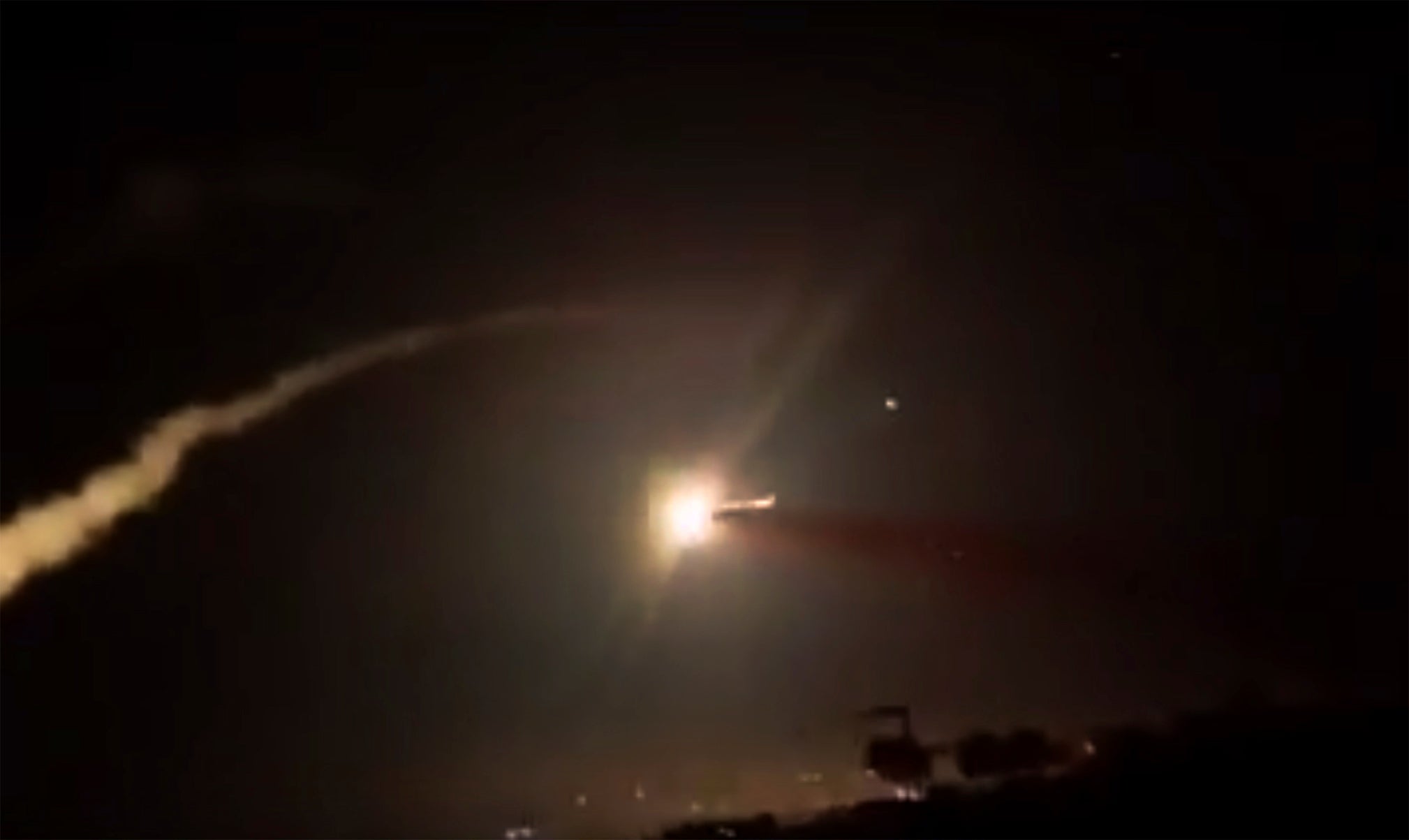Israel airstrikes on Syria raise tensions across Middle East
Russia warns the Israeli airstrikes imperilled two civilian planes
Your support helps us to tell the story
From reproductive rights to climate change to Big Tech, The Independent is on the ground when the story is developing. Whether it's investigating the financials of Elon Musk's pro-Trump PAC or producing our latest documentary, 'The A Word', which shines a light on the American women fighting for reproductive rights, we know how important it is to parse out the facts from the messaging.
At such a critical moment in US history, we need reporters on the ground. Your donation allows us to keep sending journalists to speak to both sides of the story.
The Independent is trusted by Americans across the entire political spectrum. And unlike many other quality news outlets, we choose not to lock Americans out of our reporting and analysis with paywalls. We believe quality journalism should be available to everyone, paid for by those who can afford it.
Your support makes all the difference.An exchange of overnight missile fire between Syria and Israel raised tensions across the Middle East on Wednesday in the latest confrontation in the Levant between allies of Tehran and Israeli forces.
There were no confirmed deaths, though at least three Syrian soldiers were reportedly injured, according to Syrian state media.
Russia’s defence ministry warned in a statement that the Israeli airstrikes “directly” imperilled two civilian planes landing at nearby Damascus international airport, a sign of continuing friction between Israel and Moscow since the accidental downing of a Russian reconnaissance plane in September.
The clashes terrified civilians on both sides of the border. Israeli residents in the north reported hearing loud explosions and seeing trails of smoke in the skies.
Residents on the western outskirts of the Syrian capital, Damascus, were rattled by the roar of incoming and outgoing rocket fire, and flashes of light and fireballs in the night.
The attack was the first since Donald Trump’s announcement of an abrupt withdrawal of 2,000 or so American troops from Syria. That move severely disappointed Israeli prime minister Benjamin Netanyahu and other members of Israel’s national security establishment hoping to enlist American help in their aim to curtail Iran and its allies’ influence in Syria and Lebanon.
But the latest strike showed the controversial withdrawal, along with the tensions with Syrian ruler Bashar al-Assad’s Russian patrons, were unlikely to alter Israel’s security posture towards its northern neighbour.
“Israel is sending a message to Russia and Iran that the US withdrawal doesn’t mean that Israel can’t act in Syria, and that it shouldn’t be ignored,” Michael Horowitz, deputy director of intelligence for Lebeck International, a Gulf-based consultancy, told The Independent.
“These airstrikes relate to the US withdrawal,” he said. “They came right after Netanyahu warned Israel would extend its activities in Syria after the US withdrawal.”
The exchange of fire began with what Syria’s official news agency described as airstrikes launched from Lebanese airspace against a position west of Damascus, targeting a weapons depot in the town of Qatana, about 25 kilometres from the centre of the capital.

Syrian forces responded with anti-aircraft missiles that were shot down by Israel’s air defence system, Israeli army radio reported. “No damage or injuries were reported,” said a statement issued by the Israeli army.
Syria, equipped with Russian S-300 anti-aircraft batteries that could be seen firing ferociously in video posted to the internet, claimed it intercepted “most” of the Israeli missiles. Russia’s defence ministry said Syrian air defences destroyed 14 of 16 missiles.
Israel has not confirmed firing the original air strikes as per its usual protocol, but it is widely assumed it launched the attack as part of its ongoing efforts to roll back what it describes as Iranian efforts to use Syria as a weapons and personnel conduit to Lebanon’s Hezbollah and other allied militia groups arrayed along Israel’s northern front.
“We will do everything to prevent an Iranian entrenchment in Syria, and we are doing it,” Israel’s minister of infrastructure Yuval Steintitz told Israeli army radio on Wednesday.
It remained unclear what Israel was targeting, but some media alleged senior members of Hezbollah were injured in the strike, citing unnamed sources. Former Director of Israeli army intelligence Amos Yadlin told Israeli army radio on Wednesday he assumed the targets were military hardware.
“Israel does not attack Hezbollah officials, but advanced weaponry and munitions being transferred to Hezbollah and Iran's establishment,” he said.

Join our commenting forum
Join thought-provoking conversations, follow other Independent readers and see their replies
Comments